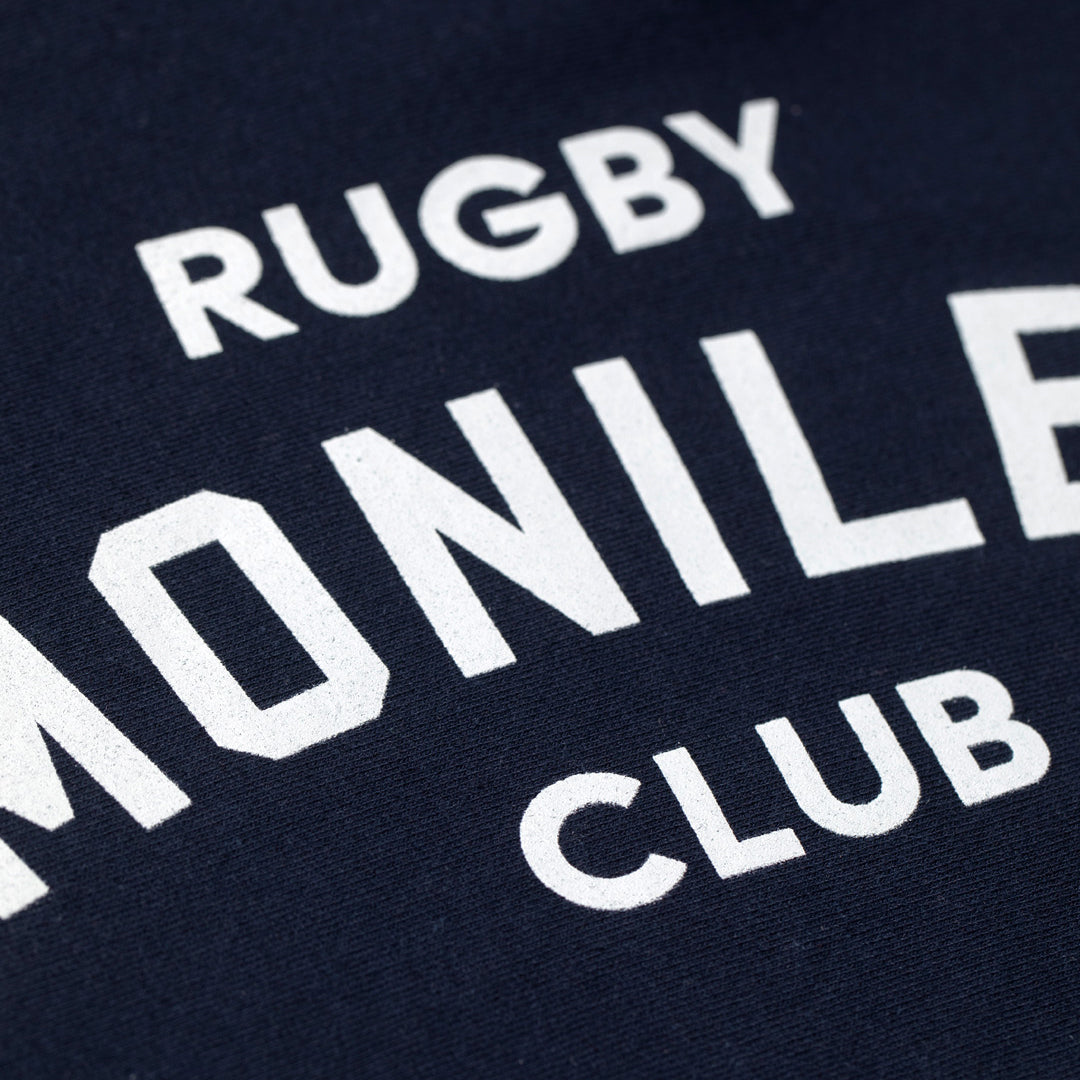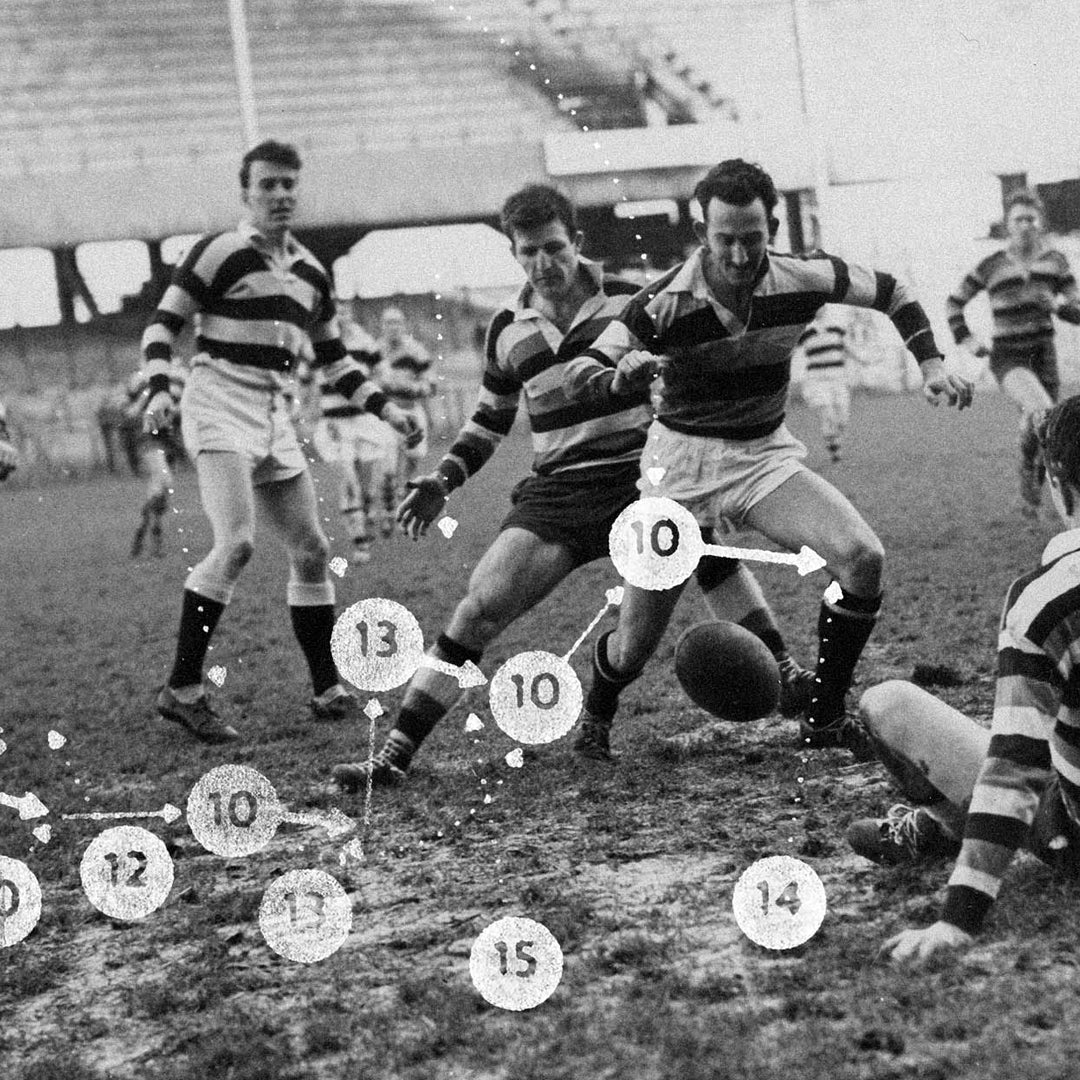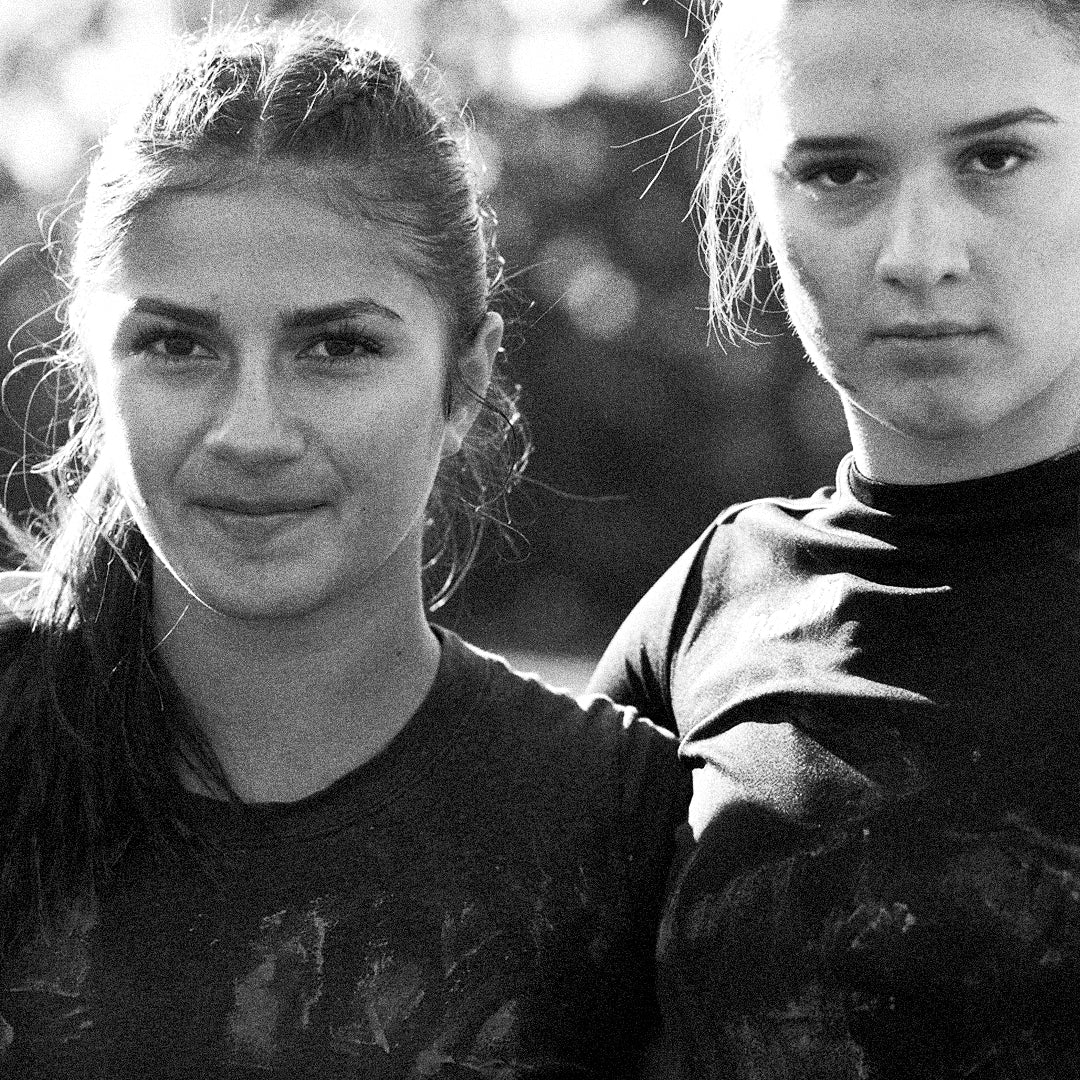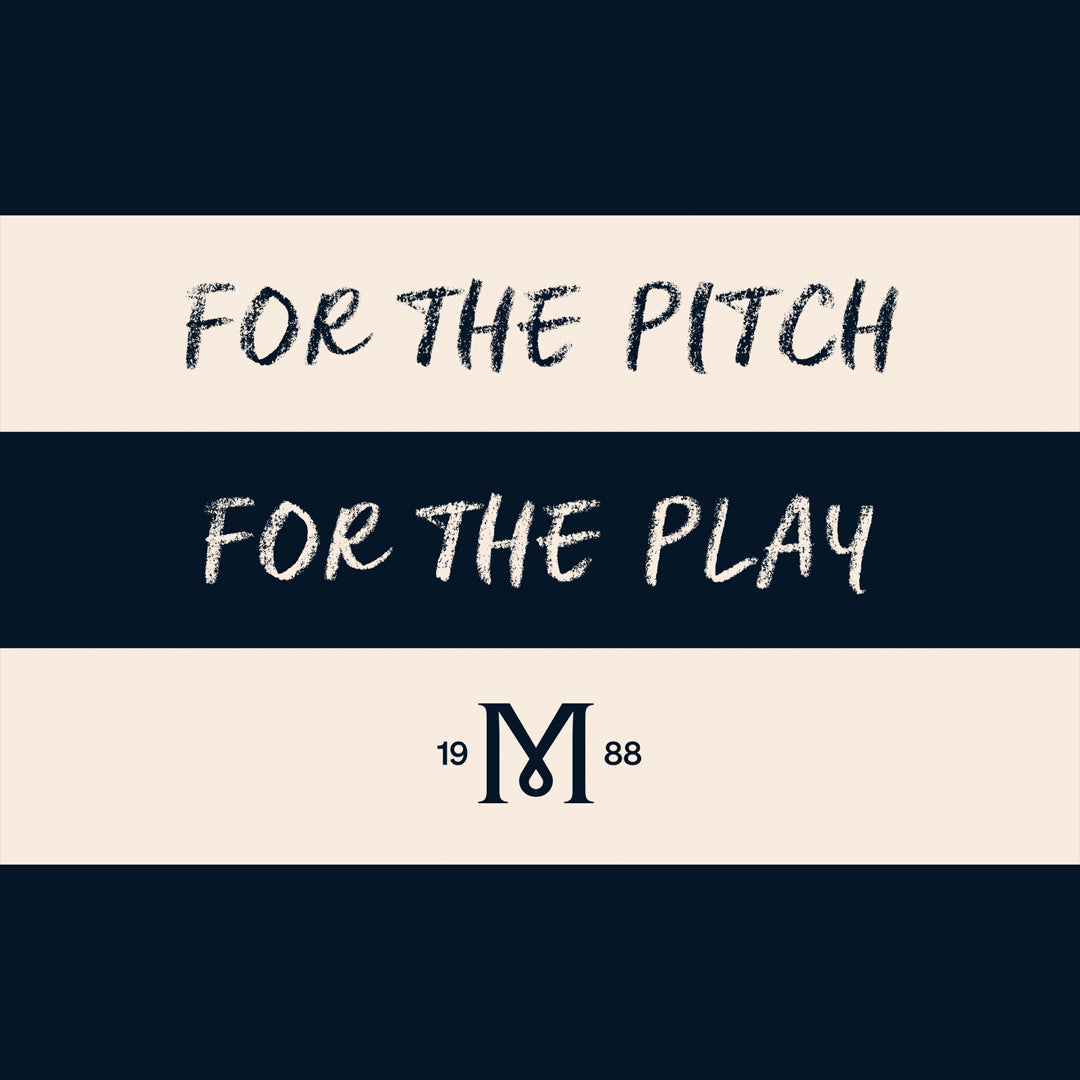Meet Kiki - Rugby found her in middle school, and showed her that her strength and speed and power was perfect for the game.
So much of what we all love about the game is the standards it holds us to. The work that is done when no one is watching. The off season lifting sessions, the time watching tape, the obsession over strategy and timing. All so that we can show up on the pitch and bring the best of ourselves to our team mates and this game. We met Kiki last Summer at Apex Gym in Toronto in an ‘in between’ period before she was heading off to the Pan Am Juniors in Paraguay.
This film is a celebration of the journey and what it means to be ‘built on standards’
Kiki is not only an incredible athlete but also a brilliant writer. Below she shares her reflections on the 2025 Rugby World Cup and the lessons to take away from the tournament that changed women's rugby, and women's sport, forever.
-----------------------------------
25 Lessons for 2025 - Pocket Sized, Rugby Built.
It’s 2025. I turned 20, the Women’s Rugby World Cup turned 10 (ten tournament milestone), and we’re officially a quarter of the way to the year 2100, hopefully flying cars will actually exist by then. On a more serious note, turning twenty flipped a switch in my head: the quiet pressure to have it all figured out, to be “ahead,” to tick boxes faster than time. Some goals sprinted while others limped. I kept asking, “What am I missing?”
Rugby kept answering. Not with grand speeches, but with tiny, human choices in the middle of noise. On the surface it looks like a tackle, but remove the noise and you see the truth in the height of the tackler. What looks like a simple kick out of bounds becomes a bought breath when lungs are on fire. When I felt lost and overwhelmed, or calm and collected, I went back to rugby.
Below are 25 Lessons derived from my experience in rugby, call it a pocket guide if you will. Short enough to carry but strong enough to impact.
-
First Five Minutes, Every Day
Openings don’t decide the score; they decide the terms. In rugby, the first five minutes set tempo and tone. Keep urgency without frenzy and be fast to shape but patient to strike. One northbound carry is a thesis, and one low tackle changes the weather. Off-field, claim the start the same: one longer exhale, one clear cue, one tiny task finished completely. Evidence before emotion.
Pocket line: Begin like you mean to continue
"Evidence before emotion."
-
Speed Kills, Hunger Finishes
Speed breaks shape—line speed, ruck speed, decision speed. Hunger closes the account: the extra support line, the chase that doesn’t sulk, the second effort when the lungs argue. Alone, each is half a story but together they feel inevitable. It’s the same math in the read world, start fast and stay interested.
Pocket line: Speed creates the chance; hunger cashes it.
-
Underdog ≠ Underqualified
“Underdog” is a market story, not a talent truth. Headlines love surprise; rankings and work don’t. You can be labeled overlooked and still be the most prepared side in the park. Treat labels like weather. Note them, dress for them, don’t become them. Play to your standard, make the game honest, and let evidence do the talking.
Pocket line: Let them sell the narrative while you bring the evidence
-
Glitter Theory
Joy is performance tech, and glitter is its signal flare. In rugby you can see it: a swipe of sparkle on the cheek, tape that catches light, or a grin in the huddle. Asia Hogan-Rochester wears glitter like a thesis statement showing presence first. When the team lets delight be visible, shoulders drop, hands soften and the work doesn’t get easier, it becomes more available.
Pocket line: Let it shine and the work becomes doable.
"Joy is performance tech, and glitter is its signal flare."
-
Leave Beautiful Evidence
Rituals are breadcrumbs back to your best. In rugby it’s the taped word on your wrist, the stud-scrape before kickoff, or the post-match one-liner to future you. Beauty here isn’t vanity, rather, it’s orientation. Make your standards visible so when the noise rises, you can find the track you laid.
Pocket line: Visible rituals make performance repeatable.
-
Pay the Toll
High levels aren’t free, they’re almost prepaid. The price shows up as early lifts, rehab when nobody claps, sleeping like it’s training, eating like it’s intent. In rugby, the toll is contact on tired legs and film when your ego would rather scroll. The trick is paying on purpose: name the mission, set the budget (time, energy, money), and don’t overdraft your values.
Pocket line: If it costs nothing, it changes nothing.
-
Own Your Square
Roles change; usefulness doesn’t. Starter, finisher, water carrier, analyst, all just logistics and titles, not your worth. Define your three and defend them under any minute: one skill you bring, one standard you keep, one service you offer (spot trends, lift energy, tighten detail). When roles shuffle, your three don’t.
Pocket line: Clarity beats status.
"Roles change; usefulness doesn’t."
-
Kick-Chase Covenant
A kick is a promise the chase must keep. Territory only turns into pressure when the runners are organized, hungry, and onside. Pace with a plan and the principle travels: if you send it go after it with structure and effort. Distance without follow-through is just lost possession.
Pocket line: Commit to the chase or don’t kick.
-
Always Go Forward
You must earn the right to go forward. Win the gainline first with short steps, low hips, and carries through contact. The exits and elegance can wait. Progress is built from ugly metres and clean decisions, not pretty detours. When in doubt take ground, then take stock.
Pocket line: Advance beats admire.
-
It Takes All Eight
Forwards know: the scrum is truth serum. Eight spines in one shape. All with the same height and the same hearts. The dark-arts of the front row mixed with the engine of the locks, and the sealed edges of the flankers while the eight steers the bus. Earn the right with distributed power. The invisible work is what prevents collapse and creates go-forward.
Pocket line: Crouch, bind, and set with all the necessary tools.
-
Touchline Courage
The sideline is a cliff only if you stare at it. Use the touchline as a defender you can beat, not a magnet you drift into. Step late and embrace the contact, but stay infield to keep the options alive. Support will come.
Pocket line: Respect the boundary but don’t surrender to it.
-
Growth Mentality
Growth means planned endings of habits, excuses, and a version of you that once worked. In rugby it looks like changing footwork that may not work against the opposition, learning a second position, or taking uncomfortable film notes but using them in the game. Feedback is a gift wrapped in sandpaper and selection is a mirror not a verdict. The work you put in will come out.
Pocket line: Outgrow the version that got you here.
-
Red is a Beautiful Colour
Colours are a declaration and the colour red holds significance for this country. It is a maple stitched over years of quiet work. When the stadium gets loud, the colour on your back steadies your hands. Play for more than yourself and the moment grows bigger without getting heavier.
Pocket line: Wear the red; carry the country.
-
The Honest Huddle
Huddles aren’t speeches; they’re agreements. Thirty seconds, one cue, one fix, one assignment. Speak in verbs and action them. Name the truth that frees the room. Honesty shrinks problems and lengthens trust because when the room knows you’ll say the real thing, attention returns to the work and the work gets cleaner.
Pocket line: Say the fix, agree to the job, and PLAY.
-
Hit Hard and Hit Low
Dominance = height + timing + intent. Drop your height, keep your eyes up, punch through, and drive through. Finish on top and look for another effort. Be ruthless and repeatable, control the level and the collision obeys.
Pocket line: Own the height, own the hit.
-
Pressure is a Privilege
Stakes mean you’ve earned a seat where outcomes matter. In rugby you feel it in the tunnel; noise increases linearly with your pulse, then you shrink the moment to tasks. Pressure is a signpost, not a threat so follow it with skills you already own.
Pocket line: Treat pressure as proof you belong.
"Pressure is a privilege."
-
The Bounce of a Rugby Ball
An oval ball refuses straight lines. So does life. Build plans that survive bad hops so keep your shape and chase through the whistle to be the first to the next picture. Rehearse the restarts so surprises feel familiar. Knock-ons happen, how do we regroup? Sometimes calls are weird, just fold and reload. Curiosity beats complaint under randomness. Flexibility isn’t flinching; it’s prepped adaptability.
Pocket line: Expect chaos and be ready to profit from it.
-
Make Friends with the Whistle
Constraints are the rhythm section: laws, refs, the clock, fatigue. Learn their music and you’ll play cleaner than raw pace ever could. “Play the ref” and adapt to their breakdown speed, ask smart questions, don't argue and live on the line without stepping over it. Win the penalty count, win the territory, and win.
Pocket line: Master the rules to expand your freedom.
-
Outcome is not Everything
Scoreboards report, they don’t define. Sometimes the bounce is weird and the whistle is quick, and well, the finish is inches, but what remains is your craft. Build a game you’re proud to repeat: clean height, honest chase, clear talk, next-action focus. Results matter but the standards endure.
Pocket line: Chase standards and let the outcomes follow.
-
The Post-Match Handshake
Rugby lets you hit like thunder and then say thank you. The line after the whistle is a boundary ritual: aggression ends, respect begins. You look opponents in the eye and thank the people who made the game work. Just compete without apology and part with grace.
Pocket line: Fight like it matters, finish like it’s shared.
-
Play the Advantage
Play the whistle. Advantage turns a setback into a free shot. Try to keep the ball alive, try that kick, and try that special move. Convert a disruption into distance. Most chances die from hesitation not harm.
Pocket line: Treat setbacks as playable, because they are.
"Convert a disruption into distance. Most chances die from hesitation not harm."
-
Blindside Opportunities
Great breaks come from the shoulder no one’s watching. Use the short side, isolate the defender, scan early, and keep your hips square. If the nine snipes or the eight picks, go with them like you planned it, Rooms have blind sides too; learn to see the unguarded edge.
Pocket line: Train your periphery and hit the side nobody’s guarding.
-
The 50:22 Vision
One smart kick can buy you land and the throw. That’s the lesson: intention beats impulse. Read the backfield, shape the defense to bite and trade the now-possession for future-possession. Territory and time are compounding currencies and win both with one choice.
Pocket line: Think two phases ahead; win twice with one play.
-
Counter-Ruck Resets
When structure snaps, reclaim the square meter in front of you. Arrive through the gate and through the body. Win the space and create the calm. Steal a beat, slow their ball, buy some time and reset your shape. Order begins with a ferocious (but legal) cleanout.
Pocket line: Win back the meter; the momentum will follow.
-
The Red-Zone Calm
Ten meters out is where noise pretends to be urgency, well sometimes it is. But urgency doesn’t mean rush. Choose a shape or a cue and repeat. Look for the space and let the posts agree. Be patient and ruthless. Take what’s on and often near the goal, simplicity is what scores.
Pocket line: Close to the line, narrow the plan and execute.
Whether it’s a good day or a bad day, these lessons are meant to meet you where you are. There’s no perfect order and no “right” way to use them. Grab one, test it, swap it, and restart. Some days you’ll sprint and others will feel like you’re learning to walk again, both count.
Rugby teaches how momentum respects evidence and respect survives the whistle. So write the word on your wrist, breathe out longer than you breathe in, kick with intention and chase with conviction. If the ground titles, pick a pocket line and move a meter.
Finish strong, even if “strong” today is simply starting again.
Author - Kiki Idowu
You can follow along on Kiki's adventures @kikiidowuu









